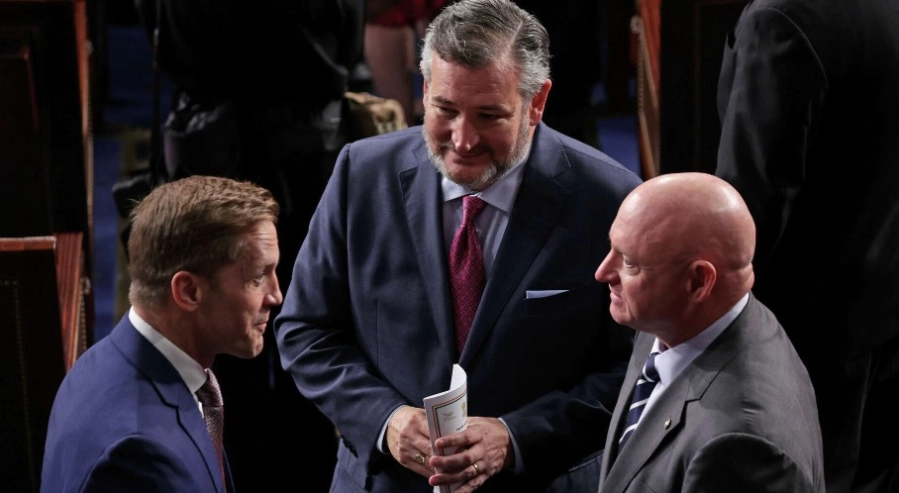Ted Cruz’s Controversial Transgender Ads: A Deep Dive into Political Strategy and Social Impact
Ted Cruz, a prominent figure in American politics and a U.S. Senator from Texas, has recently stirred controversy with his latest advertising campaign targeting transgender individuals.
As the 2024 elections approach, Cruz’s ads have sparked significant debate about the intersection of politics, social issues, and the rights of transgender people.
This article delves into the implications of these ads, the reactions they have generated, and what they reveal about the current political landscape.
Overview of the Controversy
 In recent weeks, Ted Cruz has launched a series of advertisements that focus on transgender issues, particularly concerning children and their access to gender-affirming care.
In recent weeks, Ted Cruz has launched a series of advertisements that focus on transgender issues, particularly concerning children and their access to gender-affirming care.
The ads portray Cruz as a staunch defender of traditional values, positioning himself against what he describes as an “extreme” agenda regarding transgender rights.
This strategy appears to be aimed at rallying conservative voters who may feel threatened by the increasing visibility and acceptance of transgender individuals in society.
Content of the Ads
Cruz’s advertisements feature stark imagery and emotive language designed to evoke strong reactions. They assert that current policies surrounding transgender youth are harmful and that Cruz is committed to reversing these policies if re-elected.
The ads have been criticized for their sensationalist approach, which some argue misrepresents the realities faced by transgender individuals and their families.
Political Ramifications
Target Audience
 Cruz’s campaign appears to be targeting a specific demographic: conservative voters who prioritize traditional family values. By framing the issue in terms of protecting children, he aims to galvanize support among parents who may be concerned about what they perceive as radical changes in societal norms.
Cruz’s campaign appears to be targeting a specific demographic: conservative voters who prioritize traditional family values. By framing the issue in terms of protecting children, he aims to galvanize support among parents who may be concerned about what they perceive as radical changes in societal norms.
Impact on the Republican Party
The use of transgender issues in political advertising is not new but has gained renewed attention in light of recent legislative efforts across various states to restrict transgender rights. Cruz’s approach reflects a broader strategy within the Republican Party to mobilize its base by emphasizing cultural issues.
This tactic could potentially alienate moderate voters who may view such strategies as divisive or harmful.
Reactions from Advocacy Groups
Support for Transgender Rights
Advocacy groups have condemned Cruz’s advertisements as harmful and misleading. Organizations like the Human Rights Campaign have issued statements arguing that such rhetoric contributes to a climate of fear and discrimination against transgender individuals.
They emphasize that gender-affirming care is essential for many young people and can significantly improve their mental health and overall well-being.
Counter-Campaigns
In response to Cruz’s ads, various advocacy groups have launched counter-campaigns aimed at educating the public about transgender issues. These campaigns seek to provide accurate information about gender-affirming care and highlight personal stories from transgender individuals and their families.
The goal is to counteract the negative narratives perpetuated by Ted Cruz’s advertisements and foster a more inclusive dialogue around these important issues.
Broader Social Context
Changing Attitudes Towards Transgender Rights
 The controversy surrounding Ted Cruz’s ads occurs against a backdrop of shifting societal attitudes toward transgender rights.
The controversy surrounding Ted Cruz’s ads occurs against a backdrop of shifting societal attitudes toward transgender rights.
While acceptance has grown in many areas, significant opposition remains, particularly among conservative groups. This tension reflects broader cultural battles over identity, inclusion, and what it means to be American in the 21st century.
Media Influence
The role of media in shaping public perception cannot be overstated. Ted Cruz’s ads are likely to receive extensive coverage, further amplifying their impact. Conversely, counter-campaigns from advocacy groups also rely heavily on media platforms to disseminate their messages effectively.
Conclusion: The Future of Political Discourse
Ted Cruz’s advertising campaign serves as a microcosm of larger societal debates surrounding gender identity and rights. As the 2024 elections draw closer, it is clear that issues related to transgender rights will remain at the forefront of political discourse.
The reactions elicited by Cruz’s ads highlight not only the divisive nature of these topics but also the potential for meaningful dialogue if approached with empathy and understanding.
In summary, while Ted Cruz aims to solidify his standing among conservative voters through controversial advertising tactics, the broader implications for society and politics are profound.
As discussions around transgender rights continue to evolve, it is crucial for all stakeholders—politicians, advocates, and citizens—to engage thoughtfully with these complex issues.
